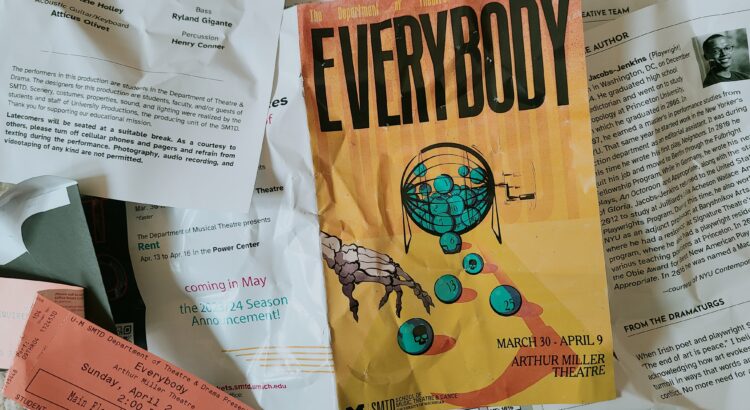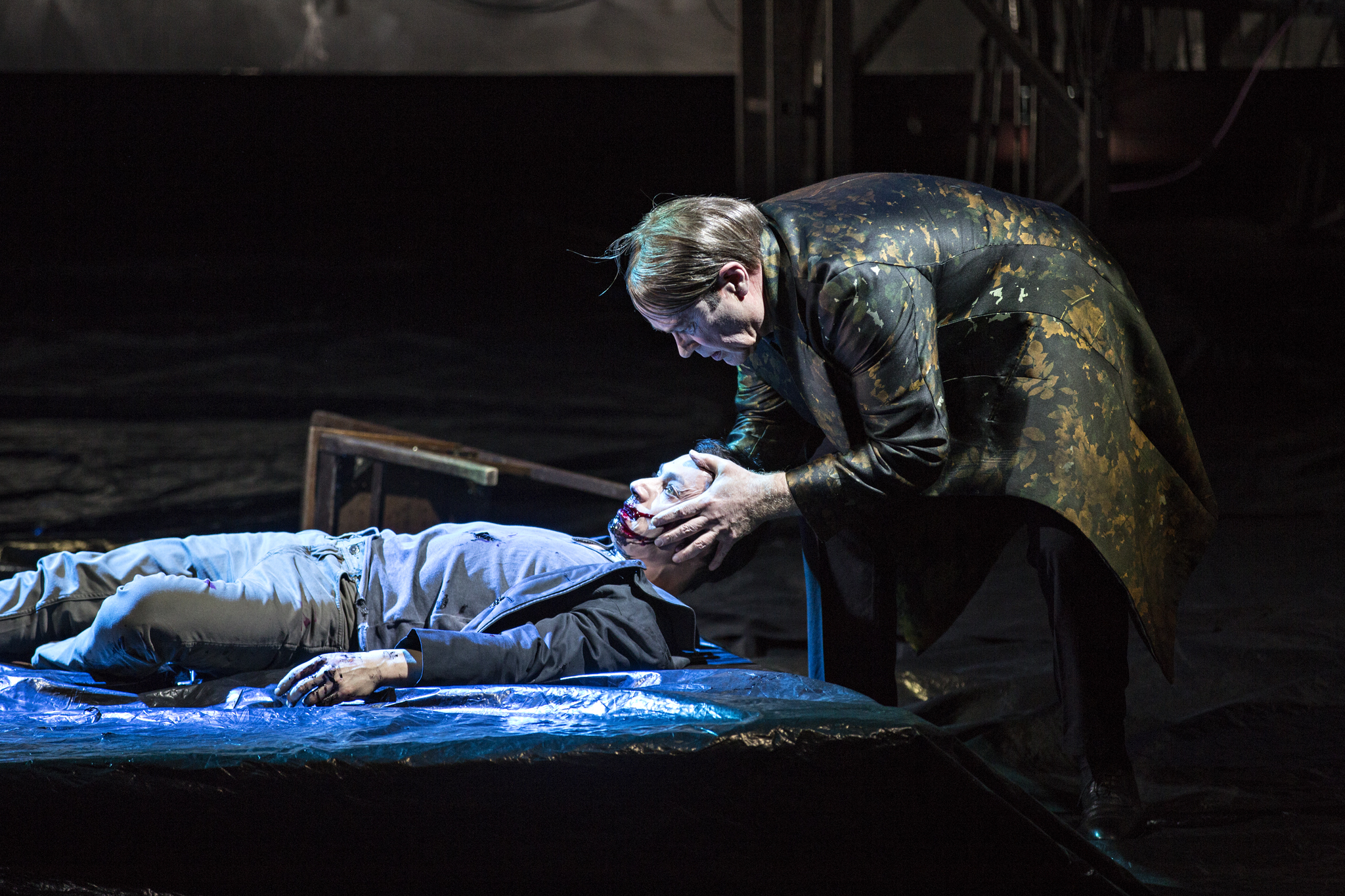2:00pm • Sunday, April 2, 2023 • Arthur Miller Theater
Everybody was a very strange experience. The play is based on the 15th-century play Everyman, a morality tale which uses allegorical characters such as Death, Everyman, Fellowship, Kinship, and Good Deeds, to explain how one attains Christian salvation. This adaptation, written in 2017 by Branden Jacobs-Jenkins, modernizes the story into a more inclusive, interfaith exploration of morality, death, and afterlife. Jacobs-Jenkins points out similarities with Buddhist philosophy in the story’s moral framework, and builds upon those similarities by questioning reality and emphasizing points such as Everybody’s attachments to the material world and the self. He also makes the play more interactive, using a lottery at the beginning that determines which actors will play which characters, and opening the play with several of the actors hidden among the audience.
I appreciated how the affordances of the physical space of the Arthur Miller Theater, the elements of audience participation, and the blending of the cast with the audience added to the surreal tone of the play. I wasn’t entirely sure when the performance had actually started, because the “ushers” spent a long scene in the beginning explaining the theater etiquette and executing the lottery. These elements made the play feel personal and “real,” which made the more surreal scenes even more jarring. For example, immediately after bantering cheerfully with the audience and explaining the reasoning behind the play, the ushers became conduits for the voice of God, speaking simultaneously and doing simple, mildly disturbing partner gymnastics while a distorted, echoing recording played over their voices.
By chance, two different cast members sat next to me over the course of the performance. The first was there when I entered the auditorium, noisily interacting with (who I later realized were) other cast members in the audience. The second actor played the role of a random child, which meant that midway through the performance a person in a puffy Alice-in-Wonderland-looking dress entered quietly, plopped down next to me, and rummaged around in her pocket for a Fruit Roll-Up. She put one end in her mouth and unrolled the whole thing into her lap, slowly sucking the strip into her mouth. It was weird, and I was uncomfortable. I felt this brief sense of relief when I realized she was an actor, but also sort of guilty. What if those actors had just been people being people? A more critical awareness of my own “othering” tendencies was an unexpected result of the performance.
I appreciated the weirdness with which SMTD executed this production of Everybody, and I wish the audience had been a little fuller, although it was a Sunday matinee performance. The cast did a great job, and I look forward to hopefully seeing them in some other productions during the next few semesters.





